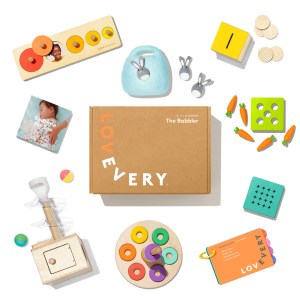Ice, ice, baby—try these easy science activities

We know: science experiments can be messy, but they don’t have to be elaborate to capture your child’s interest. If you can find a way to make them happen from time to time, it will be well worth it. Your toddler will love learning how things transform, change colour, and mix.
Your toddler is all about doing things on their own these days. They want to hold ice in their hand as long as possible, feel shaving cream squish through their fingers, and watch as a powder dissolves into liquid when they stir it.
If the weather is warm, you can strip your little scientist down to their diaper—perhaps a swim diaper—and set them up in a shady spot outside (always supervised). Then they can explore to their heart’s content… and maybe spend a little time playing with the hose before they come back inside 😁
Here are some light-prep science activities for toddlers:
Mixtures and Solutions
- Have your toddler pour some drink powder into a cup or jug of water. Next, give them a spoon or chopstick to mix it with.
- Put drops of food colouring into water, watch it sink and spread, then have your toddler stir.

- Pour the buttons from the Mosaic Button Board into a wide bowl or tub of water. Give your toddler a small sieve or strainer (the kind with a long handle, like this one) and have them fish out the buttons. Talk about how the buttons stay in the sieve while the water pours out of the holes.
Melting ice cubes
- Ice is endlessly fascinating to a toddler. They will love transferring it into a tub of water with a slotted spoon. Invite them to feel the ice and notice its properties: what is its temperature? Does it change over time? If you want to try this inside, put a few layers of towels down on the floor first.
Changing colour

- Put a dollop of whipping cream or shaving cream on a wide plate or tray.
- Add a drop or two of food colouring and let them mix with a spoon, a stick, or their hands.

- Fill a wide, shallow tray with a layer of baking soda. Pour white vinegar into a few small bowls and colour each with a different food colouring (three different colours is plenty). Using a dropper, demonstrate for your toddler what happens when you drip some coloured vinegar onto the tray of baking soda. Your toddler may need you to fill up the dropper each time before they try dripping their colours onto the tray.

The Play Kits
The Play Kits by Lovevery are thoroughly tested, baby safe, eco-friendly and Montessori inspired. Give your child the best start with our stage-based play toy subscription boxes.
Learn morePosted in: 22 - 24 Months, Crafts, Fine Motor, Playtime & Activities, Science, Child Development
Keep reading

22 - 24 Months
25 - 27 Months
28 - 30 Months
31 - 33 Months
34 - 36 Months
Our favourite birthday and holiday gift ideas for 2-year-olds
These fun gift ideas for 2-year-olds support their motor skills, independence, and creativity.

19 - 21 Months
22 - 24 Months
25 - 27 Months
28 - 30 Months
31 - 33 Months
34 - 36 Months
What kind of chores are right for my child?
Children as young as 18 months can start taking on regular household responsibilities. These will be simple and straightforward, like wiping up spills or helping set the table, and will require modeling and patience from you.


22 - 24 Months
Welcome to The Companion Play Kit for months 22-24
Watch Lovevery CEO Jessica Rolph introduce the CompanionPlay Kit for months 22 to 24 of your toddler's life.
